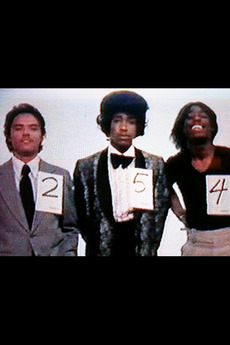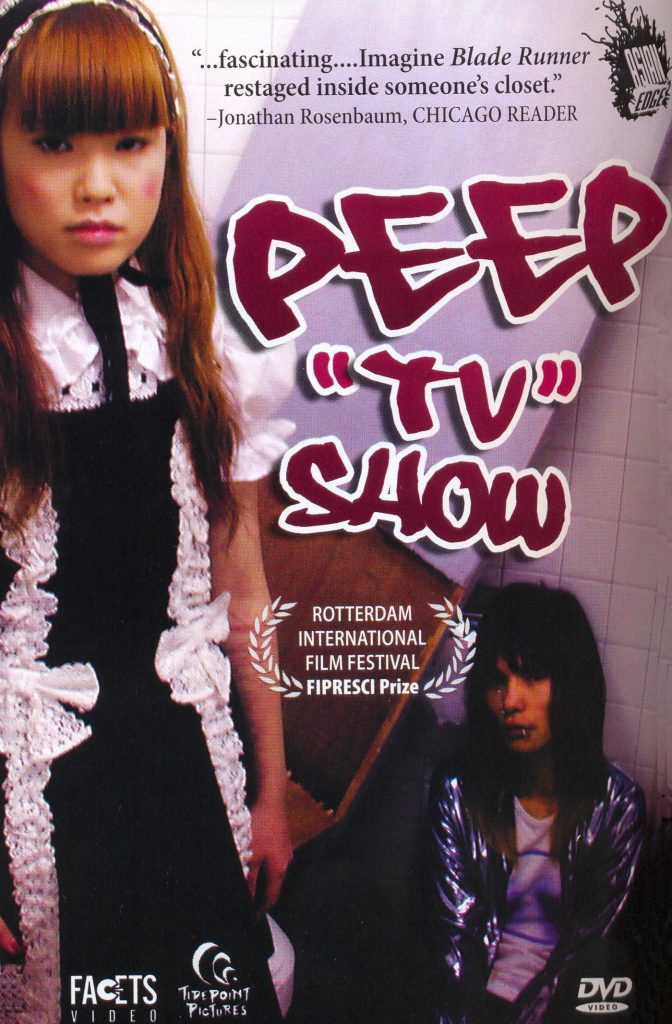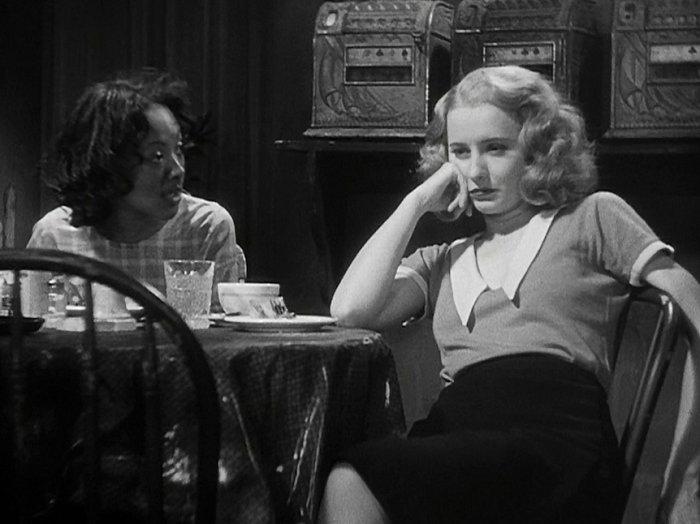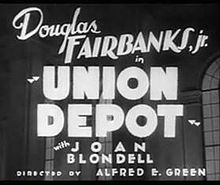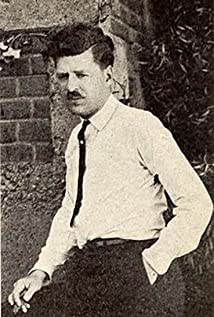From the December 1, 1989 Chicago Reader. — J.R.
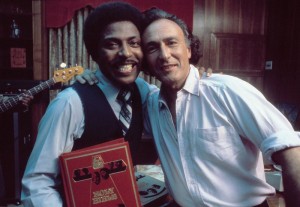
Made for West German television in 1980, William Klein’s very entertaining and energetic documentary portrait of the rock-and-roll idol was shot mainly in Macon, Georgia, Little Richard’s hometown, at a time when the singer was a media evangelist for a company selling expensive commemorative Bibles. Midway through production, Little Richard had a financial dispute with the Bible company and announced that he’d received a message from God telling him to walk out on the film. He promptly disappeared. Ordinarily, this would have left the film and filmmaker high and dry. But a deft use of archival footage of Little Richard in his prime, combined with Klein’s usual fascination with media fanfare — including a hilarious procession of black and white Little Richard impersonators — gives the film more than enough to sink its teeth into. And because this is William Klein, the teeth are sharp and the bite is sure. (JR)
Read more
From the August 20, 2004 Chicago Reader. — J.R.

I headed the critics’ jury at Rotterdam in 2004 that gave its top prize to Yutaka Tsuchiya’s exceedingly weird fiction documentary video about teenyboppers drifting around Shibuya, Tokyo’s fashionable shopping district. (Another big fan of the film, incidentally, is Claire Denis.) Bewildering in the best sense, this kinky low-tech digital video is fascinating for its Martian-like characters — dressed like fairy-tale figures and preoccupied with obscure rituals — and its singular use of space, which combines the claustrophobia imposed by small cubicles, TV screens, and surveillance cameras with the vast exterior reaches of the urban landscape, confounding our usual grasp of inside and out, public and private. Imagine Blade Runner restaged inside someone’s closet. In Japanese with subtitles. 98 min. (JR)
Read more
My column for Caimán cuadernos de cine, submitted in April 2023.
One of the limitations of auteurist criticism is its overlooking of certain remarkable film directors who lack clear auteurist profiles, such as Alfred E. Green, Mervyn LeRoy, and Roy Rowland.
To consider them in reverse order: My work as consultant on the 1998 re-editing of Orson Welles’ Touch of Evil enabled me to become acquainted with Janet Leigh, and when I once asked her whom her favorite director was among those she worked for, her answer was neither Welles nor Hitchcock, both of whom she revered, but the much lesser known Rowland, the first one who directed her (in The Romance of Rosy Ridge, 1947), because he was kind enough to teach her certain basics about moviemaking. When Samuel Fuller cited LeRoy along with John Ford as a role model, I suspect he was thinking not only of LeRoy’s versatility but of his particular distinction in directing such powerful social dramas as I Was a Fugitive from a Chain Gang (1932) and They Won’t Forget (1937).
Alfred E. Green (1889-1960), a favorite of mine, started out as a silent actor and a director of two-reelers and ended his career directing TV episodes. Read more
From the January 24, 2003 Chicago Reader. — J.R.
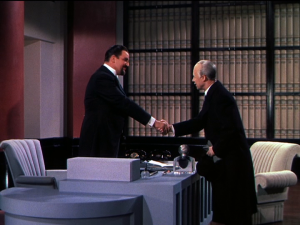
Ernst Lubitsch’s only completed film in Technicolor (1943), and the greatest of his late films, offers a rosy, meditative, and often very funny view of an irrepressible ladies’ man (Don Ameche in his prime) presenting his life in retrospect to the devil (Laird Cregar). Like a good deal of Lubitsch from roughly The Merry Widow onwards, this is a movie about death as well as personal style, but rarely has the former been treated with such affection for the human condition. Samson Raphaelson’s script is very close to perfection, the sumptuous period sets are a delight, and the secondary cast — Gene Tierney, Charles Coburn, Marjorie Main, Eugene Pallette, and Spring Byington — is wonderful. In many respects, this is Lubitsch’s testament, full of grace, wisdom, and romance (as well as a certain amount of sexism). 112 min. A 35-millimeter print will be shown. Gene Siskel Film Center, 164 N. State, Monday, January 27, 8:00, and Thursday, January 30, 6:00, 312-846-2800.
Read more
